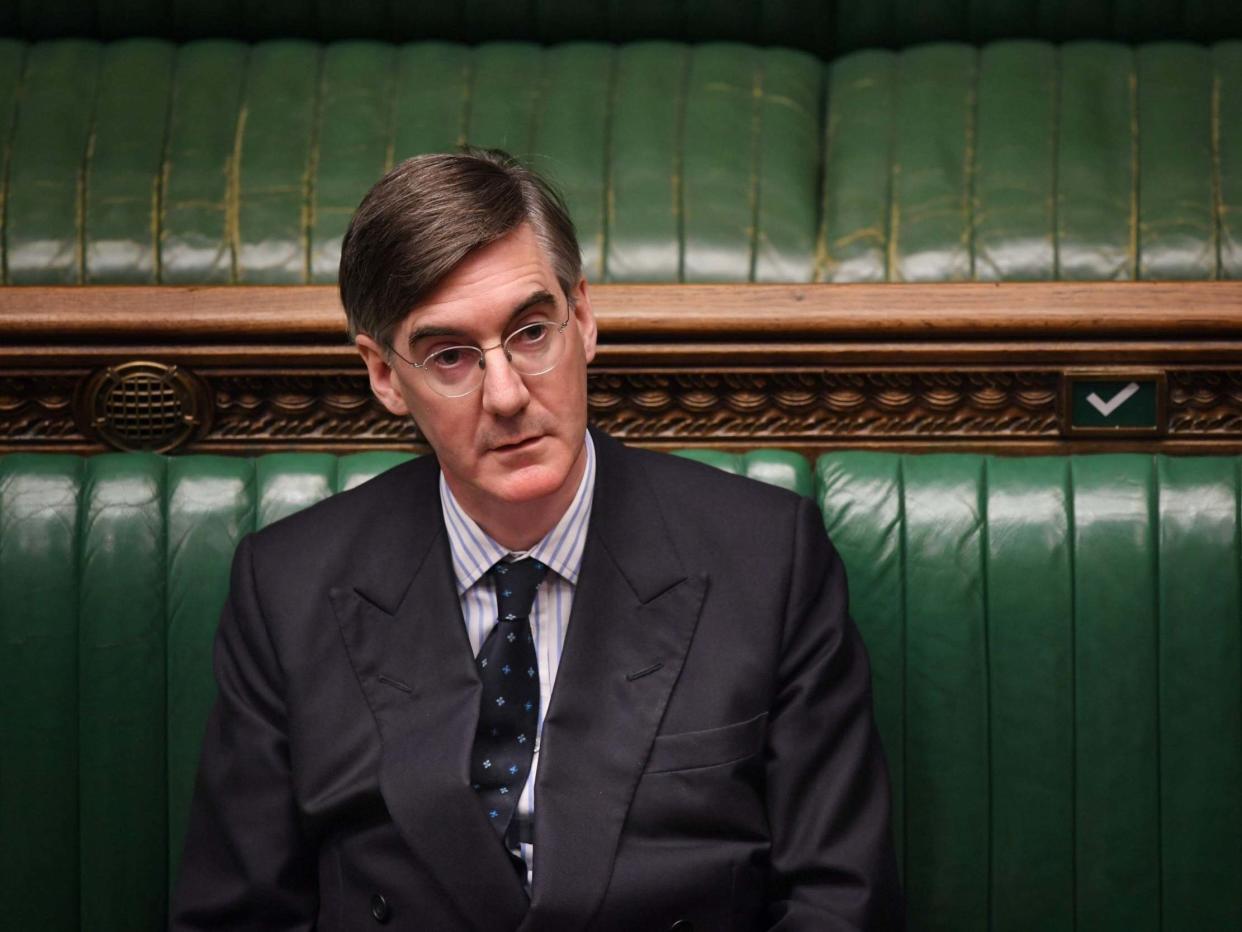Jacob Rees-Mogg has brought his beloved parliament into disrepute – and made the government look weak

At least the people who finally get to the front of the queue at Ikea get a cushion and some meat balls, said Valerie Vaz, Labour’s shadow leader of the House of Commons. All we MPs get when we get to the front of our queue is the chance of an infection, she added.
The Jacob Rees-Mogg conga line was already an object of international ridicule, but the news that Alok Sharma, the business secretary, has self-isolated and been tested for coronavirus turns the government’s folly into a more serious setback.
It was Rees-Mogg’s stubborn attachment to parliamentary tradition that led to the long queue for MPs to vote in person. Most of it was socially distanced, but there was a bottleneck in the tunnel to the MPs’ offices across the road opposite Big Ben, where MPs were forced to be close to each other.
If Rees-Mogg had been flexible, he could have allowed the experiment with remote voting and remote speaking to have carried on, and avoided the health risks so vividly illustrated by the sight of Sharma at the despatch box, dabbing his fevered brow with a handkerchief.
In fact, just because Rees-Mogg says something doesn’t make it untrue. He is right that MPs can’t ask people to go to work or pupils to go to school if they are not prepared to attend parliament themselves. He is even right that MPs can do their jobs better if they are in parliament. There is a case for asking MPs to take part in debates in person if they can, which is perfectly possible under the distancing rules that allow a maximum of 50 people in the chamber.
But he should have allowed MPs who are clinically vulnerable, or caring for someone in that position, to continue to take part by video link. Indeed, MPs from Scotland and Northern Ireland should be allowed to join proceedings remotely because of the difficulty of getting flights to London.
And the case for requiring MPs to vote in person is weak. It ought to have been overwhelmed by the public health case against it. The main advantage that traditionalists can think of for voting in person is the chance to talk to ministers and other MPs, but that is harder to do at two metres’ distance, and anyway it’s not important enough to have a disorganised half-mile queue that means votes take twice as long as usual.
Only today did the government finally come up with rules to allow MPs who are clinically vulnerable to vote by proxy, which was a grudging admission that it had made a mistake. And MPs will be allowed to vote by swiping their identity cards, which should speed things up and allow two separate, socially distanced queues.
These changes still leave vulnerable MPs unable to take part in debate, and those with caring responsibilities forced to choose between those responsibilities and their duty to their constituents.
Once again, the government has undermined confidence in its ability to manage the coronavirus crisis. The prime minister damaged his own credibility in asking people to observe the guidelines by allowing Dominic Cummings to stay on at No 10.
Now Rees-Mogg has shown that the government cannot even run a socially distanced parliament competently, while it asks people to go back to work to save jobs.
Hence the power of Labour leader Keir Starmer’s demand this week: “Get a grip.”
Read more
PM held 'socially distanced' meeting with sick minister
More than third of Wednesday's coronavirus tests were postal kits
No 10 fails to deny claims Boris Johnson wanted ‘herd immunity'
Nearly 30,000 UK coronavirus tests sent to US lab found to be invalid
Nightingale hospital re-opens for CT scans to help cut waiting lists

 Yahoo News
Yahoo News 
